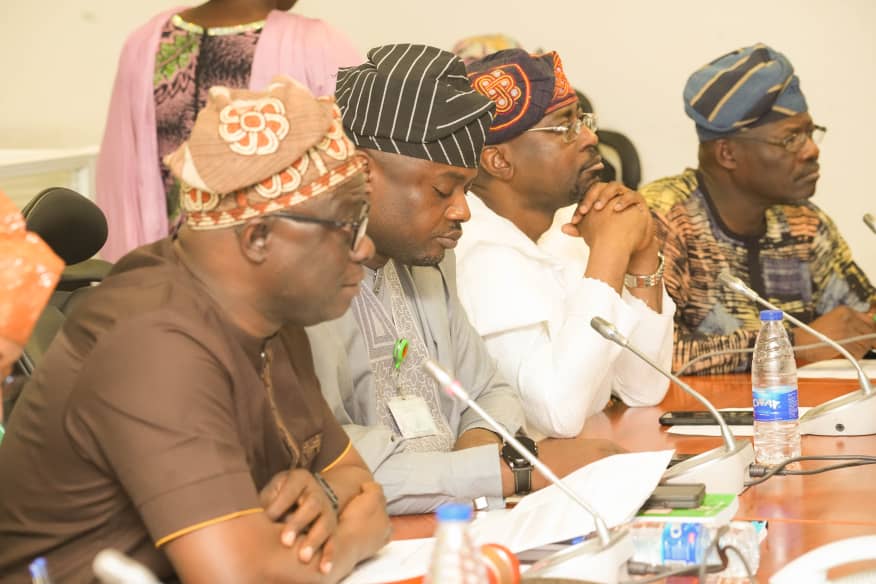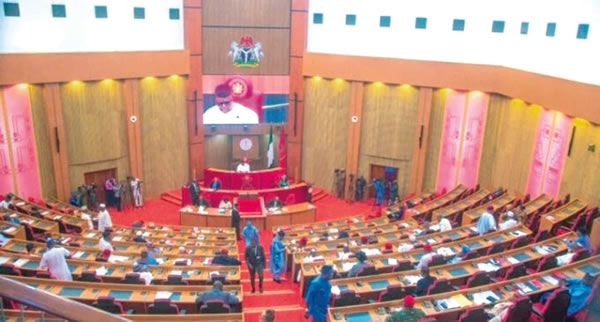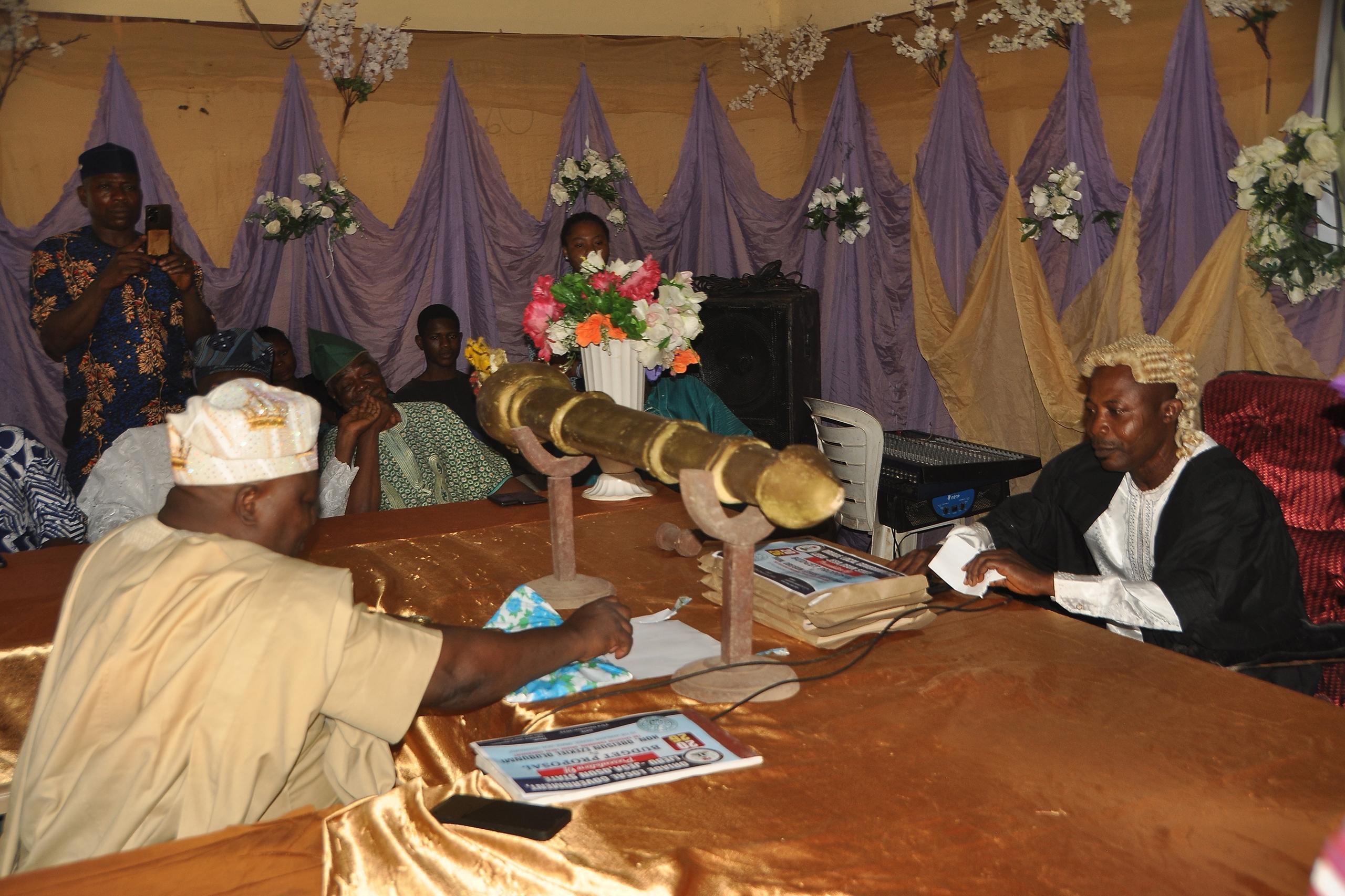Reps Committee Scrutinize OAGF, OAuGF Over 2020 Auditor’s Financial Report
The Accountant General to the Federation and the Auditor General on Thursday faced the scrutiny of the House of Representatives Public Accounts Committee regarding the revelations outlined in the 2020 Auditor General’s report.
The session, held to delve into the findings of the report, provided a platform for both officials to clarify and address concerns raised by the committee Chaired by Representative Bamidele Salam regarding financial management and accountability within the government.
Read also: Breaking: NLC Declares Two Days Nat’l Protest Over Hardship
IPOB To Tinubu: Crash Cement Price, Don’t Allow Nigeria Implode
2024 Olympic Qualifier: Waldrum lists 21 players for Super Falcons vs Cameroon
In report by the Auditor General for the Federation, Shaakaa Kanyitor Chira, titled “Highlights Of The Auditor General For The Federation Annual Report For The Year Ended 31ST December 2020,” revealed twenty-three (23) cross-outing issues.
According to him, “I submitted my Annual Reports on the Federal Government of Nigeria Consolidated Financial Statements for the year ended 31st December 2020 and Non-Compliance/internal Control Weaknesses in Ministries, Departments, And Agencies (MDAs) of the Federal Government of Nigeria for the year ended 31 December 2020 to the National Assembly in accordance with the provisions of the Constitution of the Federal Republic of Nigeria, 1999 (as amended).
“I issued a qualified opinion on the Federal Government of Nigeria (FGN) Consolidated Financial Statements (CFS) for the year ended 31st December 2020. The FGN CFS for the year ended 31st December 2020 principally because of material misstatements in the FGN CFS submitted for audit by the Accountant-General of the Federation (AGF).
“My Opinion was that the FGN CFS for the year ended 31st December 2020 was true and fair except for matters referred to in the basis for the audit opinion section of the Report.
“I wish to state, for the purpose of record, that the misstatements referred to in the preceding paragraph might have been due to error and/or fraud. The exact cause(s) of the misstatements could only be unraveled if the MDAs individually prepared their stand-alone financial statements and subjected same to audit by my Office, through Resident Auditors, before consolidation by the AGF.
“Other bases for qualification of the opinion are; Consolidation of Unaudited Trial Balances and Non-Preparation of Stand-Alone, Financial Statements of MDAs, Non-adherence to the timeline on Exemptions taken on First Time adoption of International Public Accounting Standards (IPSAS).
“IPSAS 33 provides for a maximum of three (3) years transition period from the date of adoption of IPSAS accrual for all ASSETS and LIABILITIES of the FGN to be identified, valued, and brought into the CFS. As we speak, key assets like Airports, Dams, Railways, Power Generation Stations, Roads & Bridges, the National Assembly, the Federal Secretariat, etc. are not in the FGN CFS. It may interest the PAC to know that the FGN migrated to IPSAS accrual on 1st January 2016. As we speak, there is no end to the FGN transitional period which started in 2016.
“Cross-cutting Issues are the same non-compliance/internal control weaknesses that were identified in at least four (4) ministries, Departments, and Agencies (MDAs) covered by the audit. The attention of the Public Accounts Committee Of the National Assembly was drawn to each of these issues through recommendations, including Sanctions, with a view to stemming the tide. (There were twenty-three (23) of these Cross-outing issues.”
Reacting to the report of the Auditor General, The Accountant General of the Federation, Mrs. Oluwatoyin Sakirat Madein said: “The report of the Auditor General of the Federation on the consolidated financial statement of 2020 audit report had just been presented and various issues have been identified to have been found in the financial statement so prepared and presented.
“All the issues have been listed and they broad down on sometimes non-compliance with the standards surrounding the preparation of the financial statement while some are on the report of the MDAs as submitted and consolidated.
“The office of the accountant General of the federation is responsible for collating and consolidating financial statements as submitted by MDAs and I want to bring it to the attention of this Honorable Committee that the adoption of the International Public Accounting Standards (IPSAS) was formerly done in 2016 but it’s implementation slow because of the series of issues but at the office of the Accountant General the preparations of the account are in line with the standards as commenced at that time but its commencement and adoption at the MDA level is still a major issue that we have observed and still working on them to be able to prepare the financial statements inline with the International Public Accounting Standards (IPSAS), it is stand-alone financial statements, so the impacting the knowledge and training and making them do that is ongoing and we will insist in the submission of any report from the MDAs to be inline going forward.
“Also, Where there are issues with the statement of figures, materiality used, and the categorization of assets and liabilities. These are issues that will be addressed and we look at those issues that affect the fair view of the account and see that they are tackled in our subsequent activities but to tackle the report for 2020, about 30 issues were identified and some are concerning the federation account why 26 are concerning the MDAs, which we have looked at them and we will now get to all the MDAs that affected to report on the areas that affected them and this report will form the basis of our either responding to the issues or presenting our version or how will move forward from this point to the next point.
“So, I can assure you that at the Office of the Accountant General of the Federation, we are not taking the responsibility to prepare the account with levity because it’s our responsibility and we must discharge on that. unfortunately, the year that passed for some time in 2020, and here we are in 2024 but that doesn’t stop us from correcting where there are needed and also ensuring that such errors don’t reoccur.”
“When I read about the negative net asset aspect of the report, the way I understand it is that in this report we have our negative net asset as N33.3 trillion while the total asset is N10.1 trillion and total liabilities are N43.4 trillion, so that is what resulted in the negative net asset of N33.3 trillion, so if it were a company and you know someone who wants to buy to the company comes and looks at the books and see this kind of a report, you agree with me that is not likely the person will want to buy the company or going into it and this is a report that goes into consideration by major players, Nationally and Internationally who have to do with the Federal Republic of Nigeria, so if I may ask how healthy will you say that the country is financial with this report as at 2020, with this negative net assets?” Chairman questioned.
In her response to questions raised by the Committee members, The Accountant General said “In the case of the Auditor General’s opening statement, he mentioned that legacy assets of the Federal Government had not been valued and included in the financial statements, that is where the negative assets are coming from and we discovered that valuation of assets is something that takes time like the entire National Assembly is an asset of the Federal Government that should come into the financial statements, Airport all over, so the valuation of the assets is the critical issue now to get to the level that valuers will be brought in to measure all the assets and we collect the value and bring them into this report, “The report of 2020 doesn’t include the value of the assets that we have as a country” it is because of the time the approval basis of IPSAS was adopted, earlier it was cash basis where assets and liability were not considered.
Responding to other issues raised by the report on Extra-budgetary expenditure of 256 MDAs exceeded their overhead cost budget to the tune of N284.3 billion in the year 2020, she explained “Some Federal Government business entities, those that are running the business raising their revenue and conducting business do adopt IFRS but these will still be consolidated if we want to have the account will still be consolidated into the Federal Government consolidated financial statements but there are few that adopt International Financial Reporting Standards.
“From my experience, MDAs do come forward because the extra-budgetary provisions mostly come from accessing funds from Service wide Vote, when MDAs access funds from Service wide Vote (SWV) it will not come into the budget of that MDAs, these are normally what formed the extra-budgetary in most cases because there is a service-wide volt that MDAs do access through series of the process probably they have some activities that were not included in the budget then they will move forward to the ministry of finance in fact in draws up to the presidency to approve access to such funds, so most times this formed the bases of extra-budgetary expenditure”
At this end, the lawmaker unanimously agreed to invite the 256 MDAs that overshot their budgetary expenditure in the year 2020.













Post Comment